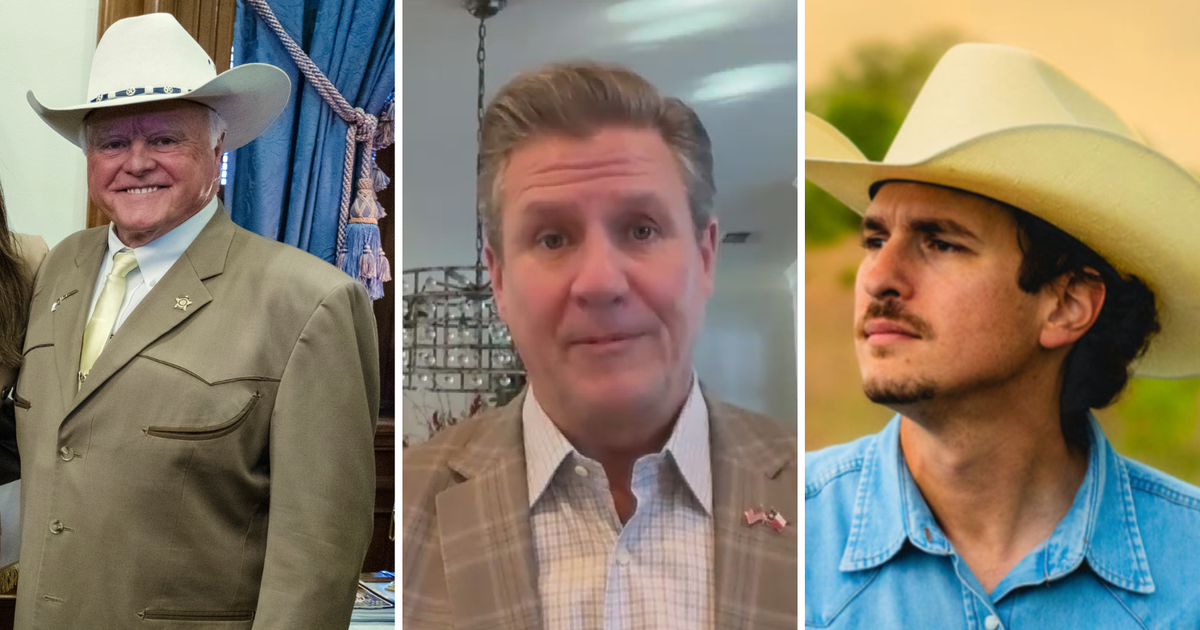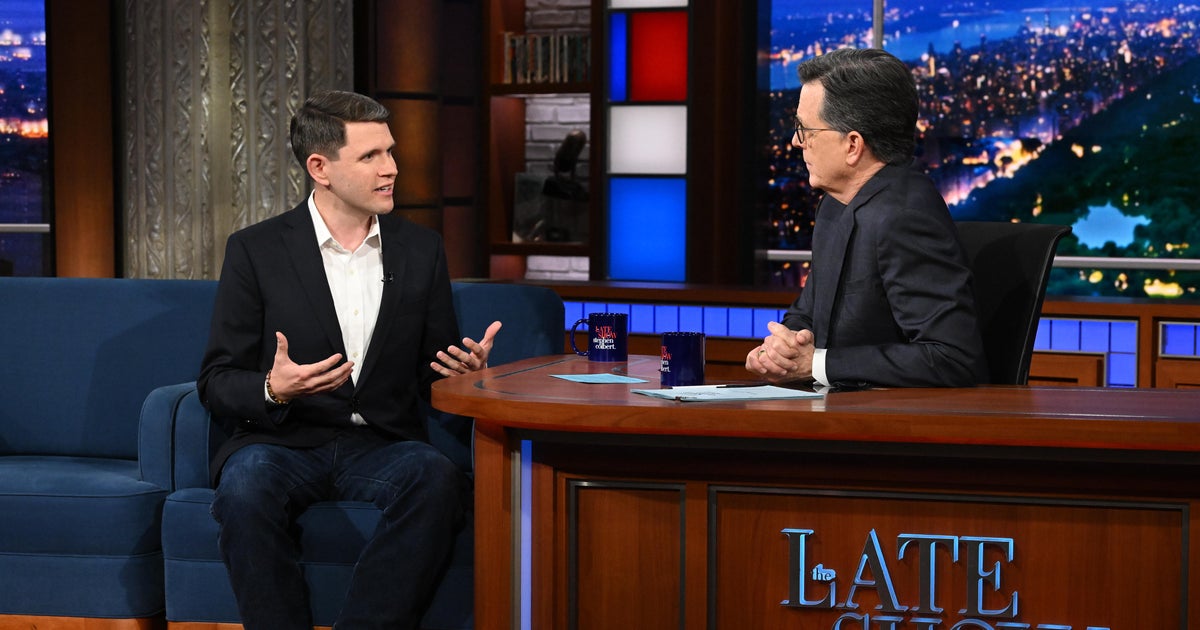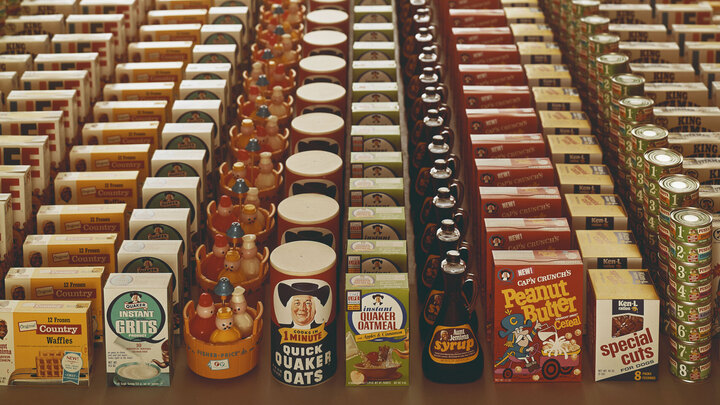Transcript: Scott Gottlieb discusses coronavirus on "Face the Nation," March 29, 2020
The following is a transcript of an interview of former FDA Commissioner Scott Gottlieb by CBS News' Margaret Brennan that aired Sunday, March 29, 2020, on "Face the Nation."
MARGARET BRENNAN: We now go to Connecticut and former FDA commissioner Dr. Scott Gottlieb. Good to have you back with us.
DR. SCOTT GOTTLIEB: Thanks.
MARGARET BRENNAN: Doctor, we heard from Anthony Fauci, the director of the National Institutes of Health, this morning on another network. He said the U.S. will likely have millions of cases, potentially hundreds of thousands of deaths. Do your projections look like this?
GOTTLIEB: Well, I certainly hope not. I think we'll get- definitely gonna have hundreds of thousands of cases, we might get into the millions. Right now, you look at what's happening around the nation, you see epidemic spread in cities like Chicago with 1,800 cases, New Orleans with 1,300, Miami with 1,100, Los Angeles with 1,800. And you see a number of cities that have doubled the number of cases in the last three or four days: Detroit, Philadelphia. So this looks like a national epidemic right now. And I think a lot of those cities are going to be in a situation similar to what New York is in right now. New York is actually show- showing some signs that the spread may be slowing in that city. They made some good decisions early, and maybe in seven to 10 days they'll actually see themselves peak. But as they come down that epidemic curve or start to peak slowly, other parts of the nation are going to be heating up. And just in closing, I'll say our capacity to sustain and support multiple cities simultaneously as they go into an epidemic is going to be very difficult.
MARGARET BRENNAN: The White House is discussing lifting, loosening some of these guidelines and restrictions. I know you have shared your recommendations with them. What should be the trigger for loosening them at a time when it only seems that this is spreading?
GOTTLIEB: Well, we've said in a report that we put out today that you should wait until you see sustained reduction in the number of cases for 14 days. So 14 days after you start to see a sustained reduction in the number of daily cases, that's the point at which you can contemplate lifting some of these measures that we have in place right now, some of these very aggressive social distancing measures. But you need to do it very gradually. You need to substitute in other things. There's other conditions that need to be met. You need to have the ability to test the population widely so you can determine who has the infection, who doesn't, and use case-based interventions, where you isolate individual people. You also want good information about where the virus is spreading. You need to be testing very widely to know where the virus is spreading. So those tools need to be in place. Now those tools are getting in place. I think by the end of the week, we'll have the capacity to screen maybe as close to- close to 750,000 people a week. And in going into the week after that, maybe close to a million. The limitation on our ability to screen isn't going to be the screening platforms themselves. We've now deployed a lot of sophisticated platforms, including plat- platforms into doctors' offices. The limitation is going to be the low commodity components of testing, like the swabs or the plastic components used to actually run the tests. The manufacturing supply chain for those components is very limited right now.
MARGARET BRENNAN: But- but bottom line, do you expect states to be told to loosen restrictions by the White House this week?
DR. GOTTLIEB: I don't. I think what the White House is going to announce is that they're going to extend these- these measures or recommend that governors extend these measures for another couple of weeks going forward and then reevaluate at that time. The White House has talked about being data-driven. I'm hopeful that they will be. It's too early to lift these measures. We really- it's going to be a difficult April. We're gonna get through this. April is going to be a hard month. Coming May- come May we'll be coming out of this and we'll be able to contemplate starting to lift some of these measures as we see the epidemic curve come down. Remember, it's- this isn't going to be a simultaneous reduction across the country. New York's gonna come down before the rest of the country does. And it may appear that the overall number of cases around the nation are coming down because New York represents such a big part of that. But in fact, New York could be coming down and the other parts of the country going up. So we need to look at this on a regional basis.
MARGARET BRENNAN: For people at home, for a long time, the administration said don't waste facemasks on yourself. Save them for the sick. You now think people should look at this? Are those do-it-yourself one's worth anything?
DR. GOTTLEIB: They are. I think- I think people should be contemplating wearing masks. A cotton mask- we should be putting out guidelines from the CDC on how you can develop a mask on your own. It might create a secondary market on Etsy or other sites for selling those kinds of masks. There truly is a shortage of masks for the hospital sec- sector. The supply chain is very limited, and the components that go into something as simple as a procedure mask that might be used in a dentist's office is the same components that go into an N95 mask. So all that supply is going into the hospitals, but people can fashion masks that are partially protective. And the masks, the value of the mask isn't necessarily to protect you from getting sick, although it may offer some protection. It's to protect you from other people. So when someone who's infected is wearing a mask, they're much less likely to transmit infection. And studies demonstrating this come out of evaluations with the flu. There's some studies that show up- up to a 50 percent reduction in your ability to spread the flu if you're infected, if you're wearing a mask. So that- that's where the value comes in. So if we're looking at measures like stay at home orders and we're looking at lifting those in certain cities as we come down the epidemic curve, telling people, well, you don't have to stay at home anymore, but if you go out, you have to wear a mask, that could be an interim step that you take as you transition away from these very restrictive measures.
MARGARET BRENNAN: You used to run the FDA during the Trump administration. Do you think that agency can move any- any faster than it is in terms of approving kits, different kinds of them, or even ways to sanitize masks?
GOTTLIEB: Well, I think- I think Jeff Short, in the medical device center, the career professionals in that device center have moved- been moving very quickly, getting tests to the market now that that has been opened up. I think that there are opportunities to sterilize masks. I've talked to some doctors that are using gamma radiation to sterilize masks, a certain- certainly secondary procedures for sterilizing masks that can help increase the supply chain. I also think that there's an opportunity to get a therapeutic. I'm very hopeful that by this summer we could have a therapeutic available, authorized by the FDA. You look at the monoclonal antibodies that are in development, some of the antivirals that are in advanced stages of clinical trials. It's possible one of these is going to work, and we could have it therapeutic sooner than we expect. And that's really going to be a game-changer here. That could change the complexion of the risk and allow us to implement some of these- pull back some of these measures sooner.
MARGARET BRENNAN: Okay. Dr. Gottlieb, always good to talk to you.



